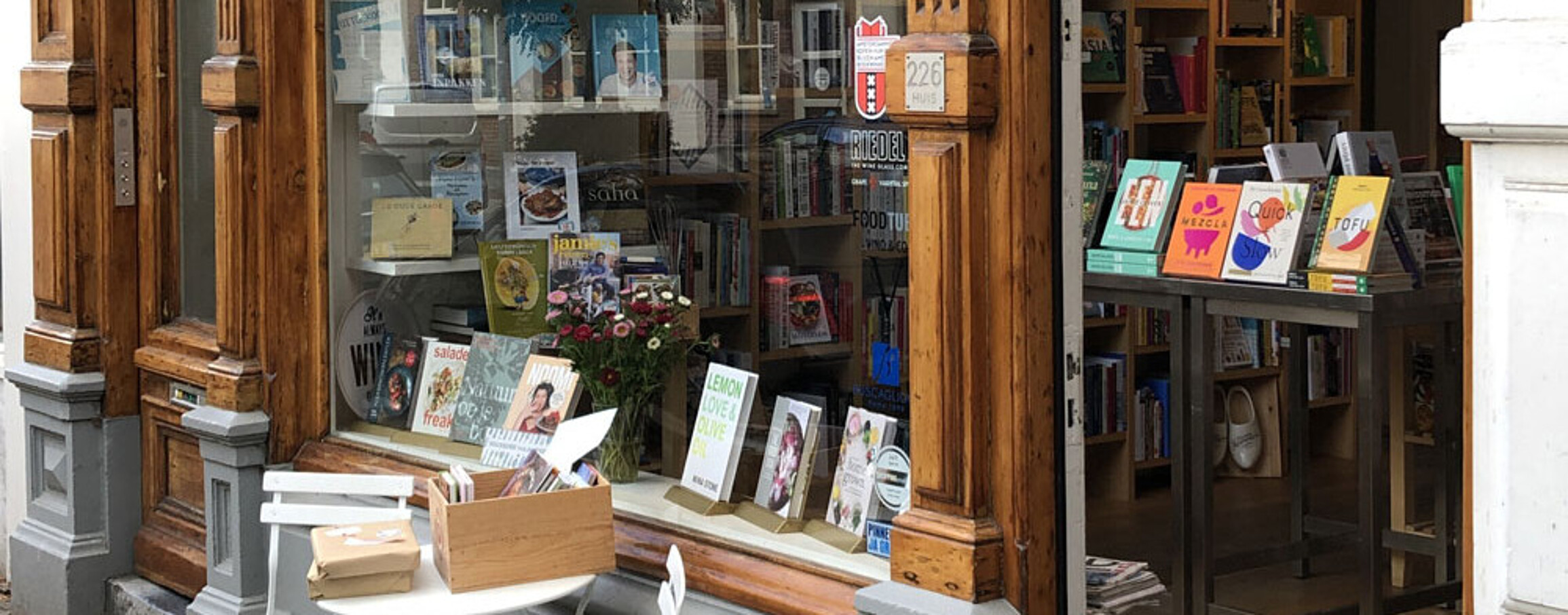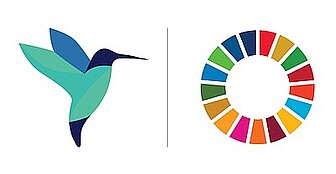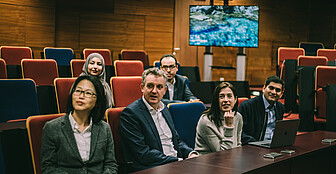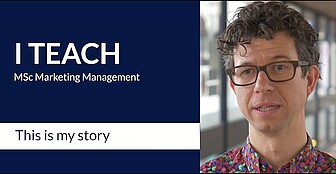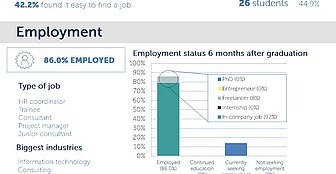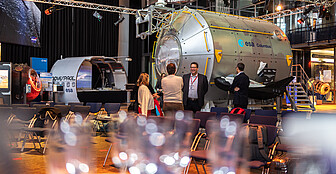
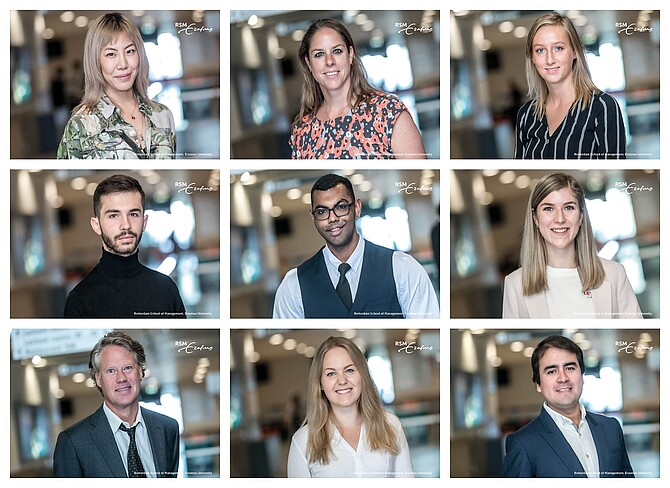
Header
Subheader
RSM BV is located in a pleasant and relatively small office, based at the Erasmus University campus in Rotterdam. It’s a lively environment, with students, staff and different companies and restaurants. The office is easy to reach by public transport as well as by car.

Curabitur auctor sodales lectus. Nullam consectetur erat at nunc facilisis bibendum. Nulla suscipit ipsum sed malesuada bibendum. Mauris vel lectus nunc. Suspendisse facilisis dolor id volutpat congue. Vestibulum vehicula ante eget elit interdum, venenatis tincidunt tortor sodales. Maecenas libero urna, laoreet et lacinia et, aliquam et magna. Vivamus dapibus finibus pellentesque. Sed sed libero urna. Suspendisse nec dolor id ligula finibus ultricies id finibus nunc. Nunc bibendum non erat eu bibendum. Quisque sed nulla at dui dictum ultricies et ac est. Fusce condimentum quam augue, ut pretium felis dictum eget. Sed iaculis nibh at nunc sodales, in congue nunc gravida.
programs programmes
behavior behaviour
| Argentina | Universidad del ABC |
| Argentina | Universidad del DEF |
| Universidad del GHI | |
| Brazil | Universidad del JKL |
Check if your research proposal can receive support from within your department and faculty. Consult your head of department to discuss how your idea fits within the research agenda of your department.
- Last update:
- Thursday, 8 August 2013
If you decide to apply for funding, then you become the person with overall responsibility for the project and the application. There are others to assist and guide you throughout the process, but you retain responsibility for the overall project. This means you must meet deadlines, and continue to involve the right people and to monitor progress until the end of the project.
Researchers feel responsible for the project during the application process, but problems often occur once the project has been approved and funding has been awarded, along with its legal, administrative and financial obligations. Funding organisations generally create a contract requiring periodic reporting and transparent financial project management. Researchers are responsible for meeting the requirements in the contract. There are people at RSM who can help you to fulfil the requirements and composing the obligatory progress and financial reports. For more information, see the funding team section.
See Appendix B for an overview of the funding team members and their contact details.
- Last update:
- Thursday, 8 August 2013
The Business Communication skill seminar is a compulsory element in the programme. During this seminar, students learn how to use a variety of techniques to effectively communicate in a business environment. Each school offers Business Communication Seminars in English, with the aim that the students transfer the acquired skills to other languages.
- Last update:
- Friday, 25 September 2020
Our main objective is to support researchers with their research funding application. You will be guided through the various phases of the funding application process, from the initiation phase to the completion of the project. These phases of the funding application process can be depicted as follows:
Each chapter of the handbook describes the main steps to be taken, gives examples, and refers to existing tools, websites and templates. By doing so we hope to remove your concerns, and enable you to be enthusiastic and confident about your funding application.
- Last update:
- Monday, 17 June 2013
Next to that: Use your own network! Ask your friends or family if they know interesting companies with internship opportunities. Also visit companies’ websites to see what offers there are.
- Last update:
- Tuesday, 25 October 2022
Once you have decided to prepare and submit a funding application, it is important to prepare and make a detailed plan of the submission process to be able to meet the deadline.
Please make use of the expertise offered by Veerle van Laere, as she can help you with painstaking and complex administrative procedures. ERIM has developed a checklist describing the various actions for preparing an application. You can download the checklist from the ERIM useful documents webpage. You can edit the checklist and tick the boxes when you have completed a particular action.
It’s particularly important to:
- Carefully read the funding scheme’s guide for applicants.
- Contact Veerle van Laere to go through the procedures and required documents.
- Download the application forms and accompanying spread sheets for budgeting.
- Check the submission deadline and add it to your calendar.
- Make a schedule for finishing your preparations, keeping in mind the deadline for submission.
- Check the method of application. For electronic submissions, you must first register in good time. Some agencies, such as NWO, require you to register at least two days before the submission deadline.
- Ask to see examples of successful applications within your funding scheme. Veerle van Laere can help here.
- Look for projects that are already endorsed and running with any particular funding provider.
- Last update:
- Wednesday, 26 June 2013
The submission phase is short but very important. Make sure you follow the instructions of the funding agency accurately, and contact Veerle van Laere to find out how and when to submit your proposal.
Most research proposals are submitted electronically. Take care to:
- Register and create a username and password before the actual deadline. Some funding agencies require you to do this at least two days before the actual deadline.
- Make sure you apply to the correct ‘call for proposals’. Some funding agencies have several calls for proposals open at the same time.
- Check which template to use before you start your application. You can usually download the right template from the website or in the electronic submission system.
- Make sure you submit all the required documents, including the appendices. The guide for applicants describes exactly which documents are needed.
- Make sure you request letters of recommendation or a host letter from your university in good time in order to be able to submit it before the deadline.
- Many funding programmes require you to convert your MS Word application document into a .pdf file before it is submitted, to protect it from changes.
- Submit your application only when you are absolutely sure your proposal all of its appendices are completely ready. Some electronic systems allow only one submission, and there is no opportunity to resubmit.
- Do not wait until the last minute: technical failures can put you at a disadvantage. If the electronic submission system fails as you submit your application, print out the message you receive as it may be used as evidence to get an extended deadline.
- Please keep the email message you receive when you submit your application. This message usually contains a reference number that may be useful in the future.
Some funding schemes still require you to submit your proposal by post. If this is the case, please:
- Contact your secretariat in good time, especially if multiple copies of your application are required.
- Check that you have printed and copied all the required documents. You usually need to include several appendices.
- Make sure you follow the submission instructions exactly, even down to details as small as whether or not an envelope should be sealed or left open.
- Double check you have the right postal address to send your application to.
- If you send your application by courier, make sure you have the correct visiting address and a contact telephone number at that address to give to the courier. The courier cannot use the postal box address.
- Ask the courier for an acknowledgement of receipt.
RSM incentive scheme
To stimulate the submission of NWO and EU proposals, RSM has developed an incentive scheme for its employed researchers.
The incentive scheme focuses on academic grants. Proposals for contract research are not eligible. You can use this link to download the RSM incentive scheme.
Once you have submitted your proposal, please send a copy of the final version to vlaere@rsm.nl so she can keep track of all ERIM funding applications and for auditing purposes.
- Last update:
- Wednesday, 26 June 2013
You are strongly advised to make a consortium agreement for co-operation projects, whether this is mandatory in the regulations or not. The consortium agreement sets out rights and administrative, financial and legal obligations between the project partners. Project Desk has a number of standard consortium agreements which can be used templates.
It is important that arrangements in the consortium agreement are in line with the rights and obligations of the grant agreement and conditions of funding. Make sure that arrangements are in place for:
- Responsibilities of the Parties.
- Governance structure for decision-making.
- Financial provisions for inter alia payments.
- Non-disclosure of information.
- Intellectual property rights.
- Right to publish and use of the results.
- Liability toward each other.
- Applicable law and the settlement of disputes.
If another partner is acting as co-ordinator of the project, Project Desk can check that the arrangements are made in accordance with the above list, and that they guarantee your interests as researchers and those of RSM (and by implication EUR).
After the consortium agreement is drawn up, you should be certain that all consortium partners are in agreement before it is signed by an authorised signatory from each of the partners.
It can be a lengthy process to get consortium partners to agree about rights and obligations because they all have their own interests to protect. Industrial partners often want to maintain confidentiality of information, and so will disagree with universities about the intellectual property rights, for example. The Project Desk team can contact the grant provider or consortium partners to work towards agreed content and formulation. Where necessary they can also contact the EUR central legal department for advice, and to obtain permission for the agreement if it is to be signed by the Executive Board. Once again it is important to have the agreement signed in good time by the appropriate signatory. More information about these mandate rules is given in section 3.2 EUR mandate rules.
- Last update:
- Wednesday, 26 June 2013
Internal budget number
Your project will be given an Internal Budget number (also called the project number) which is used when personnel, material and other costs are being administered, and to be able to report these figures to the grant provider. The monitoring process and reporting will be based on this number. Reimbursements you will make for costs related to the project will also use this reference number.
You must complete an application form and prepare an internal budget; the Project Control team can help you with this step, and with getting a signature from the head of the department and the dean and Executive Board if this is also required.
If you need support or you have questions, please contact the Project Control team.
Calculate internal budget
The Internal Budget is required during the starting phase of any project. Budgets using external grants must pay faculty for internal overhead costs for services from Project Desk and Project Control. The head of the faculty department must also be informed about the new project and approve the internal budget.
The financial structure is anchored in the internal budget. It also states how costs and revenues are administered, what internal overheads have to be paid to the faculty department and shows the effects of the subsidy on the department. Project Control will assist you to prepare and calculate the internal budget. Just as in the Agreement, the internal budget also needs to be signed by the head of the faculty department or the treasurer of the department.
Eligible costs and reimbursement procedures
Not all costs are eligible and can be reimbursed. Each grant provider has their own guidelines and frameworks in which we can process financial transactions. Reimbursable costs, the applicant’s own contribution and the information required for reporting financial figures varies according to organisation. Project Control can provide you information about financial guidelines at the start of the project. You should also be aware of internal procedures and official forms for reimbursing expenses. Project Control can explain these to you.
Time registration required
Most grant-providing organisations require you to log how much time is spent on the project. They use personnel costs and the ‘full-time equivalent’ (fte) to calculate an hourly rate. Timesheets are generally used to explain and justify personnel costs and thus explain performed – and realised – activities carried out to achieve the proposed project objectives. Project Control can provide a timesheet template and further instructions about how to record time on the project. Please note that timesheets must be signed by the researcher and the head of the department within 10 days of the end of each month.
Timesheets (template)
There are different timesheets applied for different grant providers; some require more information than others. For example, FP7 Co-operation projects require a record of hours at work package level. The activities within FP7-Co-operation are divided in work packages, which describe specific planned activities to be performed in accordance to the project plan. Project Control can provide you with template timesheets and can explain how to fill them in. Please see the example timesheet below.

- Last update:
- Wednesday, 26 June 2013
Many of our applicants doubt whether the courses they have taken during their bachelor studies are sufficient for the master programme they are applying for.
It is our experience that degree programmes vary greatly in content. Therefore it's not possible to give you accurate advice regarding your academic credentials without first checking your transcripts which you submit as a part of the application process.
For this reason, we encourage you to simply go ahead and apply for admission.
You can even apply before you have your GMAT or English proficiency results as long as you add these to your application before the application deadline or before the programme you're applying for has reached maximum capacity (whichever occurs first).
If after our evaluation we see that you’re not eligible for the programme you applied for, we will automatically evaluate your application for other MSc programmes that are still open and let you know if we can offer you any alternatives.
Remember to check out the detailed admission criteria and the overview of the bachelor course related requirements for each master.
- Last update:
- Wednesday, 7 July 2021
Your budget is also a significant part of the funding application, in addition to the research proposal. It justifies and explains why you have requested money for research and it translates the objectives in your proposal into financial figures.
The size, format and layout of your budget depend on the requirements and specifications of the funding organisation to which you are applying. Each funding organisation has its own rules which can usually be found in the financial guidelines. Please consult Veerle van Laere to find the proper financial guidelines for your application. Read them through with her to find the at the eligible and non-eligible costs, and how they should be calculated. In many cases, research staff costs are eligible for funding and a certain percentage will be covered by the funding scheme. In some cases you will receive lump sums for hiring a PhD student or post-doctoral researcher.
It’s important to consult the Project Control team RSM’s financial department to help you calculate staff costs accurately and according to the rules of the funding organisation; you might need to calculate for different scenarios or rates per hour, per day or per month. Do not wait until the last minute to draft your budget; contact the Project Control team in good time. They also need time to make the right calculations.
Own contribution
Research funding rarely covers all of your costs. Some costs are eligible and some are not, even if they are unavoidable. Many funding organisations require a financial contribution from the applicant; the size of the contribution depends on the funding scheme.
You can calculate the total project costs, the amount of funding and the applicant’s contribution with help from the Project Control team. You may need to discuss the amount of the applicant’s contribution and how it will be covered with the head of your department, especially if you want your department to pay part of these costs.
- Last update:
- Monday, 17 June 2013
It is good practice to organise a kick-off meeting before the start of the project to refine project goals and plans, explain grant stipulations, and more importantly, introduce project partners to each other, which will prove helpful for future co-operation. Meetings can be small and short for individual grant projects, or large with many participants for consortium grant projects. A consortium meeting usually lasts for at least two days and requires a lot of preparation and organisation.
Project Desk can assist with organising and running both kinds of meetings.
In the internal kick off meeting
Project Desk and Project Control will tell you, the researcher, what is required to fulfil the conditions of the grant. This is come in the form of a handbook which includes:
- Time records
- Reporting requirements
- Deadlines for submission of reports
- Project personnel
- Legal issues
- Grant eligibility
This kind of meeting usually lasts no more than two hours.
External kick off meeting
An external kick off meeting is held for large consortium projects where RSM is co-ordinator and marks an important milestone for the project. It will be the first time the work package is worked out in detail, and the first time management issues are discussed. It is a combination of a technical meeting and a steering committee (or general assembly) meeting and often lasts for two days, so also serves the purpose of team-building. The steering committee meeting can take place at the end of the kick off meeting to formally adopt decisions and points of action.
For projects in receipt of European grants, make sure you invite the Project Officer (the official contact person at the European Commission) for the first part of the meeting. As part of your preparations, draft a handbook describing management procedures and legal, financial, administrative and reporting requirements, which can be distributed to all consortium members at the meeting. You can make this handbook a required item for management activities. Project Desk can provide you with an example of such a handbook, and can also produce the handbook for you.
Project Desk can help you prepare, organise, and host a kick off the meeting. The logistics of the meeting are organised by the RSM project co-ordinator’s department secretary.
- Last update:
- Monday, 17 June 2013
Project Management for large research consortia
If the RSM researcher is co-ordinator of a project with several consortium partners, the funding body requires you to take on responsibilities that go beyond co-ordinating the scientific activities. You will also be required to monitor, co-ordinate, and organise administrative, financial, personnel and legal matters.
Project Desk can assign a project manager to your project to assist you in carrying out these activities. Tasks that can be carried out by Project Desk are listed below; the list is not exhaustive and tasks may vary according to the funding programme.
- Act as central liaison on behalf of the Project Co-ordinator within the project consortium.
- Facilitate communication within the project consortium, organise teleconferences and meetings of consortium bodies, take minutes and co-ordinate the follow-up of action points.
- Ensure monitoring and reporting of the scientific and administrative milestones and deliverables of the project, in close collaboration with co-ordinator, and the scientific and administrative team members involved in the project.
- Monitor the planned project activities, deliverables and milestones and ensure that these are implemented within agreed timelines.
- Ensure that internal and external reporting requirements are met within agreed timelines.
- Maintain a high-level overview of the project consortium budget and closely monitor the RSM project budget in co-operation with the Project Control team.
- Maintain an oversight of RSM project personnel, ensure they are eligible for funding and that correct employment contracts are in place.
- Approve project expenses, taking into account the available budget, eligibility of costs and ensuring optimal use of available funds.
- Ensure appropriate follow-up of all project-related legal and contractual issues.
- Maintain an electronic and paper project file according to RSM and grant requirements and maintain a shared consortium document system.
- Signal irregularities within the project, conduct risk analyses and communicate these to the project leader and co-ordinator.
- Prepare and co-ordinate financial audits.
Co-ordinating scientific and financial reporting
Every project that receives funding comes with specific reporting requirements. Project Desk will help you to interpret these requirements, so you can start with a clear understanding of the information needed at the end of a reporting period. You will therefore be able to collect and structure the correct information to minimise the effort required to draft reports. There is a distinction between “scientific” and “financial” reporting services from Project Desk.
Scientific reporting
The scientific report describes the scientific developments in the project. It usually requires a description of activities executed during the last reporting period, a list of deliverables which been produced, a list of articles that were published, plus mention of any changes that have been or will be made to the original project plan, activities or consortium – and the reason for the changes.
In some cases, the scientific report must be accompanied by a management report. This describes the participation of consortium partners, if the project is running according to plan and budget, if any issues or problems have come up and what you are doing to solve them.
If RSM is co-ordinating your project consortium then Project Desk can assist you in drafting this management report.
The scientific report is usually prepared by the researcher in charge. Project Desk can assist by drafting the non-scientific elements of the scientific report, such as planning of deliverables.
Project Desk will remind you when your report is due in good time, and will provide you with the correct templates for preparing your scientific report.
Financial report
The financial report explains and justifies the budget that has been spent during the reporting period. It lists purchases of equipment, travel tickets, hotel accommodation, publications, printing and personnel costs.
Time records are mandatory in many projects. Ask Project Control for the correct timesheet template required by your project funder. Financial reports provide insight in the number of hours spent on the project, the calculated hourly tariffs of project participants and an overview of spent direct costs like traveling and residence costs. Deviances from the budget plan sent with your original grant application must be explained in the report. The project controllers keep records of and administer all spending and will provide essential financial information for the financial report. This means the financial report will, in most cases, be drawn up by Project Control in co-operation with Project Desk. The researcher usually needs only to give authorisation.
Amendments to the grant agreement
If there are any major changes in the project; for example a new partner joins the consortium or a partner defaults and leaves the project, then you must show this by making an amendment to the grant agreement. Project Desk can provide legal assistance for this process if during the project, the grant agreement or consortium agreement should be amended, for example because a drastic change in the project took place such as the withdrawal of one or more partners.
- Last update:
- Monday, 17 June 2013
The role of project co-ordinator comes with a considerable number of secretarial duties. You can outsource some of the project’s administration activities to Project Desk if:
- RSM is the co-ordinator of the project;
- the project has a large consortium;
- project secretarial activities involve more than the daily secretarial duties and
- secretarial support is eligible for funding and has been budgeted for.
Project Desk can
- Collect and complete timesheets of the project team and get them signed off in good time; this is an important part of ensuring prompt payment of grant funding.
- Take care of the reimbursement forms for the project team. These reports are linked to the timesheets, so it is also important that these are completed correctly.
- Organise internal Sounding Board meetings, End User Board meetings and Advisory Board meetings including organising travel, accommodation, and pick-up arrangements and administrative support during such meetings.
- Provide administrative tasks like updating files in advance of co-ordinator meetings, preparing participant lists and name badges.
- Negotiate agreement with hotel, restaurant, facilities, etc.
Please consult Project Desk as soon as possible if you want to outsource the project secretarial tasks.
- Last update:
- Monday, 17 June 2013
In a multicultural world, speaking several languages is an important asset. It increases the attractiveness of graduates to employers as it demonstrates their international orientation and mindset and enhances their cultural awareness. It also makes the CEMS programme and CEMS graduates distinctive from other international masters. Both CEMS and RSM therefore welcome efforts by students to improve their language skills during their master programme, even if their language skills are already at the minimum required level.
- Last update:
- Tuesday, 12 September 2017
Once you graduate from the IBA programme you can continue with your studies by enrolling in a Master’s programme at RSM or another business school, or you can take the first steps in your international career.
- Last update:
- Friday, 13 May 2022
Funding organisations expect a financial report from the grant receiver at the end of a project; the format of the report depends on the funding guidelines. In some cases this means an annual audit from an accountant. However, some grant providers need only a financial report at the end of the project, with no requirement for an audit, and others ask for a report every year. The Project Control team will assist with financial reporting, but it is crucial that you maintain proper records of all project costs so you can provide them with all the information they need.
When the deadline of your project is approaching, Project Control will contact your project manager to collect:
- All costs of the project – to be declared to administrators.
- All invoices which should have been recorded.
- All timesheets completed and authorised.
- Scientific report completed (or a request is made in good time to the grant provider for an extension).
The project ends when the grant provider gives approval for the results, the financial statement, and when the last payment is received.
Some projects are audited by their funding organisations as much as five years after the end of the project. Grant providers can issue sanctions or reduce your subsidy if the archived information is insufficient or not according to the rules. This can mean you must pay back part of your grant, so it’s important to make sure you provide project controllers with a complete set of documents.
- Last update:
- Monday, 17 June 2013
ERC
European Research Council. Part of the FP7 programme ideas to fund frontier research based on scientific excellence. ERC has three types of grants: starting grants, consolidator grants and advanced grants. Detailed information on the ERC scheme can be found on the ERC website.
FAB
The ERIM Funding Advisory Board established by and for ERIM affiliates who wish to receive feedback on their draft funding proposal. The FAB particularly looks at draft VENI, VIDI and ERC proposals, gives comments and constructive feedback.
FLAT check
Financial Legal Administrative and TAX check conducted by EUR central departments before a project proposal or contract is signed by the EUR Executive Board.
FP7
Seventh Framework Programme of the European Union to fund European research and development projects. The programme concludes at the end of 2013. Its successor is Horizon2020 (H2020).
H2020
Horizon 2020 is the large European funding scheme from 2014 until 2020. It is the successor of FP7 and contains a wide variety of funding instruments to boost individual research and co-operation projects. Marie Curie instruments and the ERC grants will be part of the H2020 programme.
KNAW
is the abbreviation for Koninklijke Akadamie van Wetenschappen, the Royal Netherlands Academy of Arts and Sciences. It is an advisory body to the Dutch government and provides funding for research activities and scientific conferences. Detailed information on the KNAW funding schemes can be found on the KNAW website.
NWO
is the abbreviation of Nederlandse Organisatie voor Wetenschappelijk Onderzoek, the Netherlands Organisation for Scientific Research. It is one of the biggest Dutch funding bodies for the funding of academic research. NWO has a wide variety of funding schemes and detailed information can be found on the NWO website.
RTD
Research Technology and Development
VENI
VENI is the first of the NWO Talent Scheme grants (VENI, VIDI and VICI grants) from NWO, targeted at talented researchers at the start of their scientific careers who have obtained their PhD within the last three years.
VIDI
VIDI is the second in the series of NWO Talent Scheme grants, aimed at excellent researchers with several years of research experience after obtaining their PhDs. The scientists belong to the top 10-20 % in their discipline. A VIDI grant funds research for five years.
VICI
The third in the series of NWO Talent Scheme grants targeted at outstanding senior researchers who have successfully demonstrated the ability to develop their own innovative lines of research, and to act as coaches for young researchers. Researchers who have obtained their PhD within the last 15 years can apply for a VICI grant.
- Last update:
- Monday, 17 June 2013
In a few cases it may happen that you speak a language that you wish to choose as you third language, which cannot be proven by an accredited language institution, simply because these institutions or exams are not available. This means that you cannot use this language for your application. For example, if your secondary or university education was completely taught in Hindi, then you can claim Hindi as your third language. But if you did not have secondary or university education in Hindi, you cannot claim this language as your third language, because there are no accepted methods of proving your level. A passport alone is not proof of proficiency of a language.
- Last update:
- Tuesday, 12 September 2017
Basically, you have two options: either improve your languages and bring it up to the level that is required by CEMS, or learn a new language at beginner’s level.
If you go for the second option, it means that you drop your original third language and replace it by the new language. If you consider doing this, choose a language that is challenging and can help you in your future career. For example, for a Western student it is more challenging and more rewarding to learn Eastern languages such as Mandarin or Japanese than another related Western language.
- Last update:
- Friday, 25 September 2020
The ERIM webpage Funding Opportunities gives a systematic overview of the most important research funding schemes.
The schemes have been classified as follows:
-
National funding schemes.
-
International funding schemes.
-
Funds for travelling.
-
Funds for conferences.
-
Internal funding.
Each webpage gives a brief description of the funding scheme and a link to the webpage of the funding agency.
- Last update:
- Wednesday, 17 July 2013
Some research activities or research areas have no obvious funding programme. It may be worthwhile to ask Veerle van Laere for a personal consultation to discuss your ideas and ambitions and to look for suitable funding schemes.
- Last update:
- Wednesday, 17 July 2013
You can view information about the IBA curriculum on this webpage.
- Last update:
- Friday, 13 May 2022
Every two months, the ERIM Funding Newsletter contains articles about new funding initiatives and changes to existing funding programmes. It also gives up-to-date information about funding workshops and information sessions for potential applicants organised at EUR and ERIM. It also contains an up-to-date list of open calls for proposals and their closing dates.
You can subscribe to the newsletter by e-mailing vlaere@rsm.nl or find the web-based versions of the latest newsletters on the ERIM funding newsletter webpage.
- Last update:
- Wednesday, 17 July 2013
There are several funding databases available that allow you to find schemes based on keywords or funding organisations, for example Research Professional and Nuffic Grantfinder, which are effective and user-friendly funding databases that allow a tailored search. The most interesting funding databases are listed on the ERIM Search for Funding webpage.
- Last update:
- Tuesday, 6 August 2013
- Checklist 1
- Checklist 2
- Checklist 1
- Checklist 2

(copy 1)
| Argentina | Universidad del ABC |
| Argentina | Universidad del DEF |
| Universidad del GHI | |
| Brazil | Universidad del JKL |
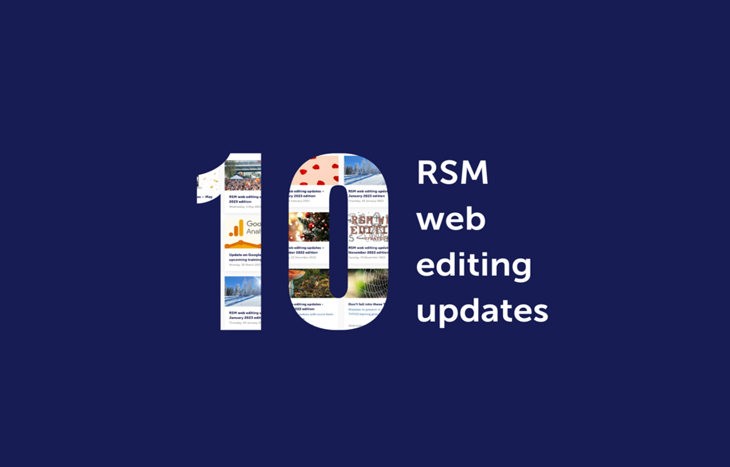
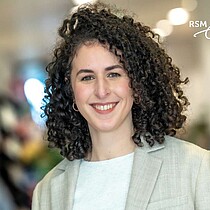
Marketing & Event Manager
If you have any questions about the marketing or organisation of the event, please reach out to me.
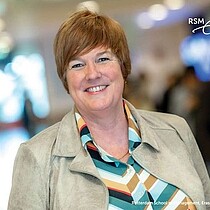
Key Account Manager
- Item 1
- Item 2
- Item 3
- Item 4
- Item 5
Nunc dignissim velit purus, sed rutrum lorem faucibus at. Mauris rutrum turpis ut interdum feugiat. Maecenas vitae orci vitae nunc egestas varius quis at sapien. In vitae suscipit orci. Vivamus pretium auctor erat at mollis. Maecenas viverra id ipsum vitae dictum. Phasellus dui arcu, sagittis at ex vitae, tempor volutpat orci. Donec aliquam purus vel sem varius venenatis. In lobortis ornare lorem, vel mattis mauris facilisis ac.
- This is some random text
- This is some random text
- This is some random text
- This is some random text
- This is some random text
- This is some random text








